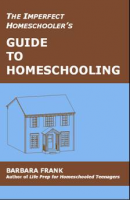Recently I saw the following comment on a forum where the topic was Common Core:
I pulled my youngest out of school when he came home and told me, with his sweet little lisp, that his teacher said “Africa was in Asia.”
He was in first grade.
Pull your kids OUT! If you think you’re in a “good” school district, think again. Similarly, if you think you’re in a good private school, think again. Please! Both parents don’t need to work — if necessary, downscale. One parent, usually the mother, can easily handle the education of the kids.
Fathers, please heed: As a woman, I destroyed my career for my kids. Any woman who has kids and takes the time to educate them — even if she hires tutors and spends her time driving the little cretins around to various “learning” activities — will sacrifice her future in ways you will never understand. As your career takes off, her career is plummeting. And its not as if she’ll be able to start again where she left off many years ago. It’s over for her. So, please, remember that when your harried wife plunges into despair as she spends her best years (40/50s) trying to rekindle her mind and work-life.
I was completely with the commenter in the first few paragraphs, but that last one blew me away. Wow! She sure sounds bitter and depressed.
And yet I can relate to her. While I’ve never thought of my children as “cretins” (that’s where I began seeing the bitterness in this comment), I understand the despair she feels. Because I’ve been there more than once since I retired from homeschooling three years ago.
If I could, I would remind this woman than homeschooling is not some minor commitment you make in addition to church and Neighborhood Watch and Zumba class. Homeschooling, when done well, will eat up your life. It’s a huge lifestyle choice that requires enormous dedication. And when you’re done homeschooling, the recipients of your efforts leave you (at least if you did it properly so that they’re equipped for independence).
It hurts on a personal level, no question. And it hurts your career aspirations, too. But wasn’t it obvious that the working world would not exactly be pounding on your door once you finished homeschooling? It should have occurred to you that the career thing was not going to be waiting for you during those 20 or 30 years you spent educating your kids.
That said, today we have far more options for work than we had 30 years ago, when I last worked full-time. Thanks to the Internet, you can work from home. You can start selling on eBay, create things and sell them on Etsy, or begin a freelance career in an area that interests you. You can offer your services as a babysitter or tutor and help the newest generation. If you don’t need an income, you can volunteer in your community.
Now that you’re free to spend your day as you see fit, you may become overwhelmed by all the choices you have. And that’s OK. It’s even OK to be bitter, for a little while. But don’t let it become a permanent emotion. Pick yourself up, dust yourself off, and start figuring out who you are at this stage of your life.
Because you were wrong when you said, “It’s over for her.” It is not “over” for any retired homeschooling mom. Personally, I’m just getting (re)started!

